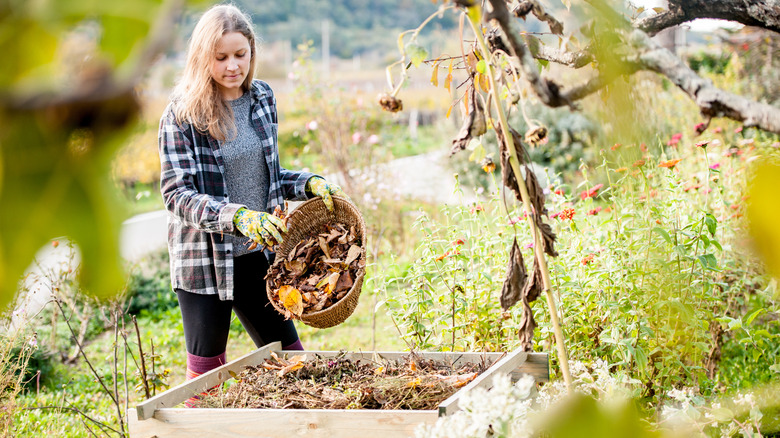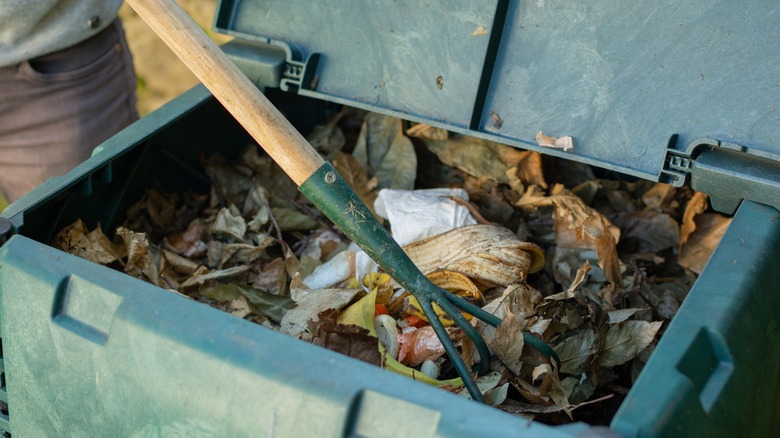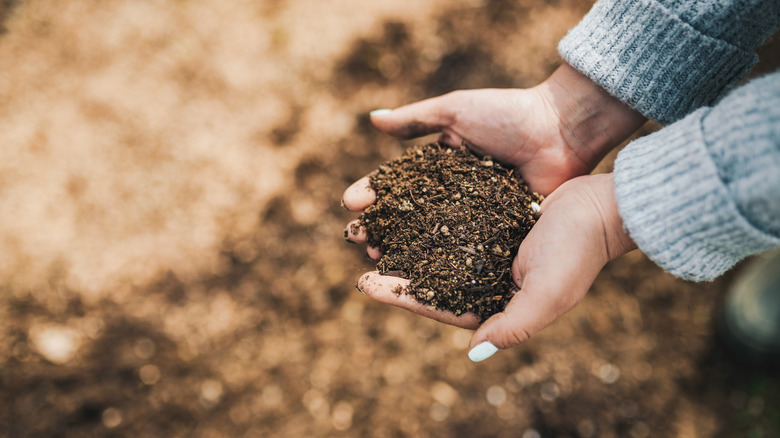Start Adding Soap To Your Compost Pile And Watch What Happens
One way to elevate your garden game is to maintain your own compost pile to feed your plants and reduce your environmental footprint. Composting is a natural process that allows you to locally decompose organic materials from your home like food scraps and yard waste without having to rely on municipal trash removal where these add them to the soil in your garden in your own backyard. These nutrients are vital for plant growth and soil health, which will help facilitate more robust plant growth and improve the structure of your soil. A healthy compost has also been known to help your soil retain moisture, reduce erosion, and even suppress plant diseases and pests. If you've been working on your own compost pile, consider adding some soap to help your pile maintain a healthy decomposition.
It may sound strange, but adding biodegradable soap to your compost heap can help protect your pile from a number of potential issues. Many soaps contain fats and oils that will work as surfactants to stop mildew from forming and control pests and odors. As a result, you'll help to create a more pleasant environment for microbial activity to do its natural work at breaking down your organic scraps that you can recycle in your garden.
Adding soap to your compost pile
Before you add soap to your compost, it's important to note that not all soaps are considered safe for this practice. You should not add liquid soaps or any soaps with added dyes or fragrances. Be sure to only add natural bar soaps that are marked as biodegradable. A few common examples are hemp seed oil, avocado oil, and beeswax. If it fits these parameters, rather than throwing away the small sliver of soap that's lurking in a corner in your shower, you can toss it into your compost heap and wait about six months for it to decompose.
Alternatively, if you'd rather buy soap explicitly for your compost pile rather than using shards from your shower, a good one to start with is Ivory soap. According to Ivory, its soap is over 99% pure and free of any dyes or perfumes that may negatively impact your compost heap. It should biodegrade naturally should you add it to your compost pile. If you choose to add a brand new bar of soap to your pile, you can encourage it to break down more quickly by grating it with a cheese grater or cutting it into small strips. The smaller pieces will be easier for the microorganisms to break down and the smaller pieces can provide mildew-fighting benefits over a wider area.
Cautions for this method
Before you go crazy and start grating multiple bars of soap over your compost bin, it's important to take note of a few cautions so that you can protect the integrity of your compost pile. While a little soap here and there can help to ward protect from mildew, it's important to remember that composting is a delicate process that can easily be disrupted. Start with a small amount and see how your compost pile reacts before adding more. Also, keep in mind that biodegradable soap typically takes six months to decompose, so you shouldn't need to add more while your first addition breaks down. Doing so may result in unintentionally adding significant chunks of soap to your garden soil and some of your plants may not appreciate this in their growing medium.
Monitor your compost pile regularly once you've added soap to see how it responds before adding any more. Over time, soap residues can accumulate in your compost heap. This could lead to imbalances in nutrients that may affect how beneficial your compost is for your garden and plants. Therefore, it's important to use soap sparingly to prevent any negative consequences for all the hard work your heap has been doing. Adjust your practice or refrain from adding more soap should you notice any issues with your compost.



